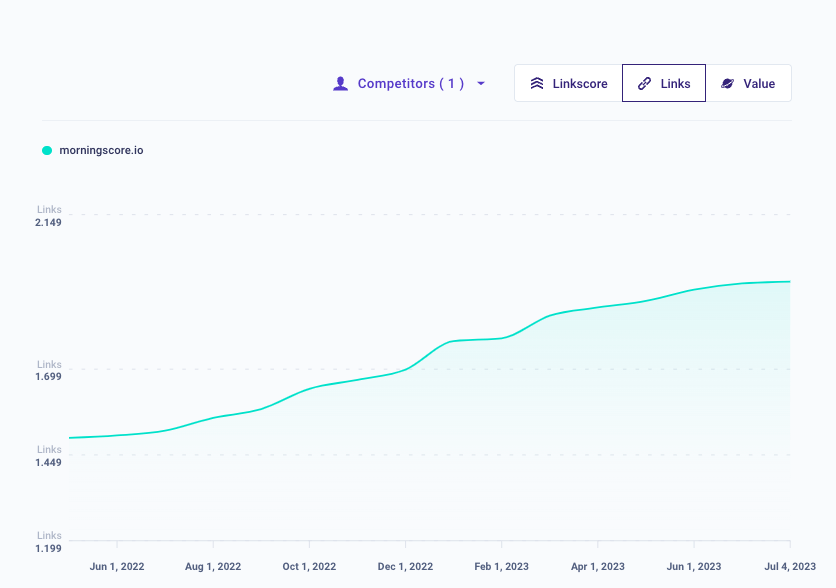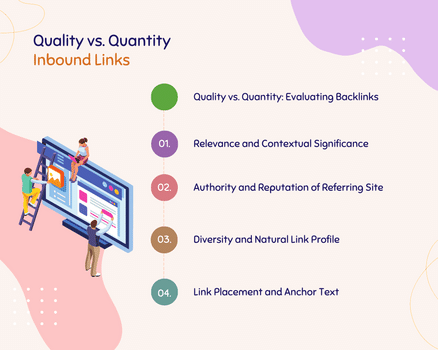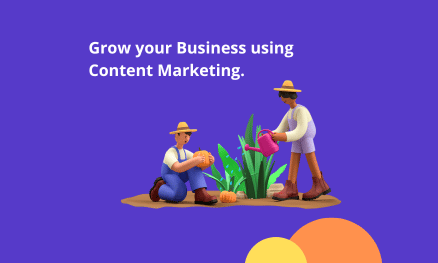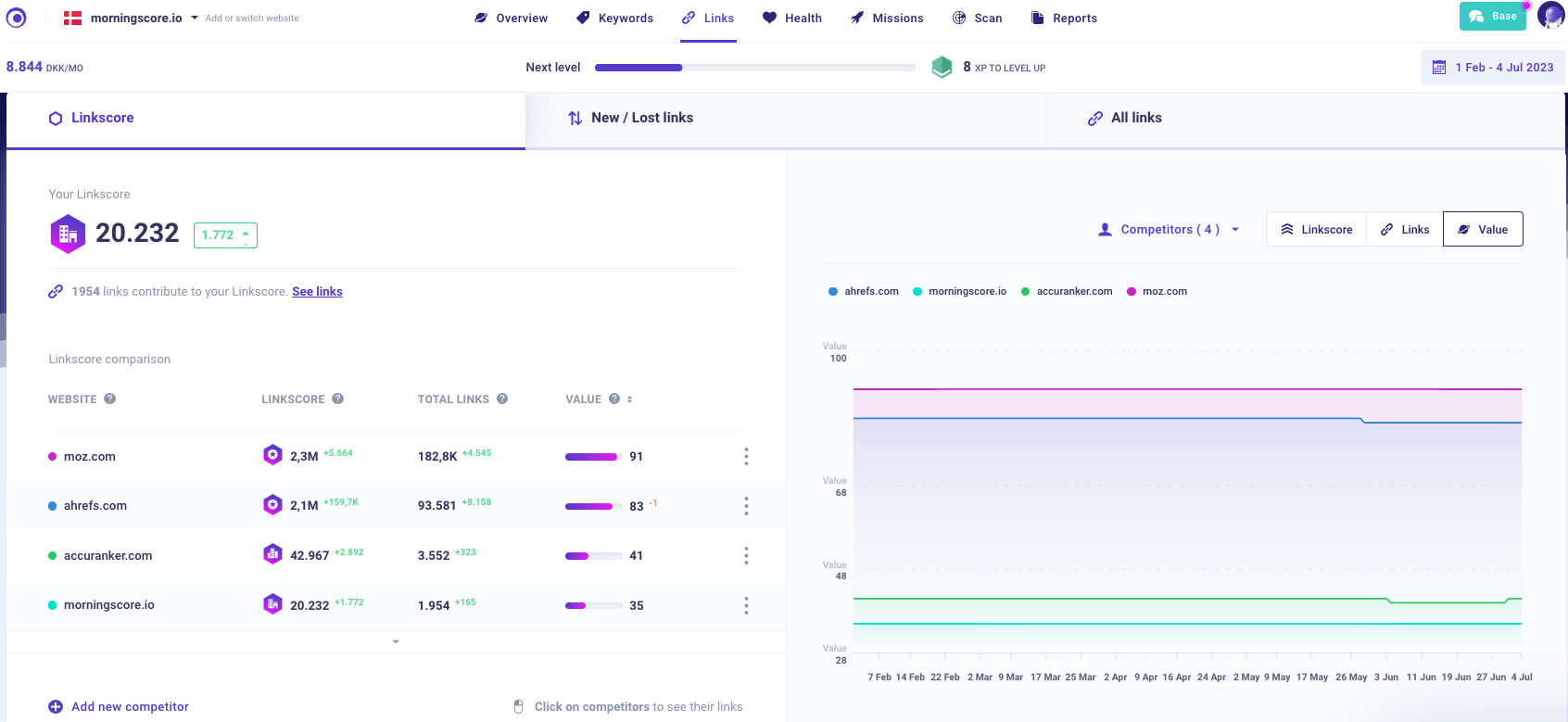In the world of search engine optimization (SEO), inbound links play a crucial role in determining the success and visibility of a website.
These links, also known as backlinks, are links from external websites that direct users to your website. They act as endorsements from other sites, signaling to search engines that your content is valuable and trustworthy.
In this post, we will explore the significance of inbound links, their impact on SEO, and strategies to acquire high-quality backlinks for your website.
Introduction
In the competitive digital landscape, achieving high rankings in search engine results pages (SERPs) is paramount for businesses and website owners. While several factors influence search rankings, inbound links have consistently been a critical element in SEO strategies.
If you have been reading or listening to SEO blogs, experts, etc. I’m certain you’ve heard them all talk about how crucial you need to have links to your website. In the following, we’ll look into what is, how they affect your SEO, and how you can gain more inbound links.
What is Inbound Links?
Inbound links are all the links that point from other websites to your website opposite to outbound links which are links from your website to another. Inbound links are also known as backlinks. They are generally one of the strongest ranking factors for Google, especially when they are high-quality.
Inbound links are all incoming backlinks from other pages on other websites toward pages on your website. Generally, inbound links work like “votes of trust” that distribute authority between websites. High-quality inbound links are among the strongest ranking factors for off-page SEO.
Generally, you can think of the term inbound as something that points inwards towards something else. That is to say; when we mention inbound links, it’s important to set a point of reference. Learn the differences between inbound and outbound links.
Inbound links work like votes of trust between websites. Generally, when search engines look at an inbound link, they see that one website is trying to recommend the other. From there on, Google judges the authenticity of the backlinking using dozens of other factors.
The Importance of Inbound Links for SEO

Boosting Search Engine Rankings
Search engines view inbound links as endorsements or votes of confidence for a website’s content. When reputable and authoritative websites link to your pages, search engines interpret it as a signal of credibility and relevance. As a result, your website’s rankings can improve, leading to increased visibility and organic traffic.
Websites receiving many inbound links have a tendency of ranking higher in Google. More links to your site is a signal of trust and authority in search engines which means that the more inbound links you have from good and authoritative websites, the better search engines will rank your website
Increasing Organic Traffic
Inbound links not only enhance your website’s visibility but also drive targeted organic traffic. When users click on a backlink and visit your website, they have a higher likelihood of being interested in your offerings. By attracting relevant traffic, you have a better chance of converting those visitors into customers or subscribers.
When other websites are linking to yours, the users see this and might click on it which benefits you. Why? Many of the users clicking probably wouldn’t have ended up on your site if they didn’t end up on your website or known about it if they haven’t seen and clicked the links.
Establishing Authority and Trust
Backlinks from authoritative websites can significantly enhance your website’s perceived authority and trustworthiness. When reputable sources vouch for your content, it reinforces your credibility and positions you as a valuable resource within your industry. This, in turn, builds trust among your target audience and fosters long-term relationships.
Quality vs. Quantity: Evaluating Backlinks

While the number of inbound links is essential, it is crucial to focus on the quality and relevance of those links. Search engines prioritize links that are from reputable, authoritative, and relevant sources. Here are some factors to consider when evaluating backlinks:
Relevance and Contextual Significance
Links coming from websites that are topically related to your content carry more weight. A backlink from a relevant source demonstrates the contextual significance of your content and indicates its value to users.
Authority and Reputation of Referring Site
Backlinks from reputable and high-authority websites have a more substantial impact on your SEO efforts. Search engines consider links from trusted sources as more valuable endorsements.
Diversity and Natural Link Profile
A diverse and natural link profile consists of links from various domains and different types of websites. Having a healthy mix of backlinks demonstrates that your content is valuable to a broad range of audiences.
So, having purely niche-relevant backlinks seems quite unnatural. You should have a link profile containing niche-relevant links, from blog sites, comment sections, forums, business directories, media, profiles, etc. These aren’t bad links just because they aren’t ultra-relevant – they help you to obtain a natural backlink profile with all sorts of links that naturally occur.
Link Placement and Anchor Text
The placement of the link within the content and the anchor text used are crucial factors. Links placed within the body of the text and accompanied by descriptive anchor text provide more value and context to search engines.
Effective Strategies to Build Inbound Links
Now that we understand the significance of inbound links, let’s explore some effective strategies to acquire high-quality backlinks for your website:
Creating High-Quality Content

Creating valuable, informative, and shareable content is the foundation of any successful link building strategy. By producing exceptional content, you increase the chances of attracting organic backlinks from other websites as you are a good source of knowledge.
The best links are the ones that come in naturally that we don’t need to ask for. This doesn’t happen if you are sloppy with your content work. You need to spend the resources necessary to make kick-ass original content that people can actually use as a source of knowledge.
Low-quality content has exactly 0% chance of getting natural links from anyone as their credibility is on the line.
Guest Blogging and Influencer Outreach
Collaborating with influencers and industry experts can open doors to valuable link building opportunities. Contributing guest posts to authoritative websites not only exposes your content to a wider audience but also allows you to earn backlinks from within the guest post – that’s a win/win.
These links require some work and preparation from you. So, what you want is to reach out to the most relevant only. This also increases your chances of actually getting acceptance for publishing a guest post with a link on their site, if you can bring value to their users. So, keep in mind that the intention here is to add value for them and not you.
Social Media Engagement
Engaging with your audience on social media platforms can help you establish connections and build relationships. By sharing your content and actively participating in discussions, you increase the chances of your content being shared and linked to by others.
Online Directories and Listings
Submitting your website to reputable online directories and listings can help you gain exposure and acquire relevant backlinks. Ensure that you choose directories that are relevant to your industry or location for maximum impact.
Building Relationships with Webmasters
Developing relationships with webmasters and other website owners can lead to link building opportunities. Networking within your industry and engaging in mutually beneficial partnerships can result in organic backlinks.
Best Practices for Link Building
To optimize your link building efforts, consider implementing the following best practices:
Researching Competitors’ Backlinks
Analyze the backlink profiles of your competitors to identify potential opportunities. Look for websites that have linked to your competitors’ content and consider reaching out to them with your own valuable content.
There are tons of SEO tools with such features – including Morningscore which you can try completely free of charge for 14 days.

Leveraging Broken Link Opportunities
Identify websites that have broken links, particularly those pointing to content related to your industry. Reach out to the webmasters, alerting them to the broken link, and suggest your content as a replacement.
This, of course, is dependent upon that you actually have a content piece that can replace this. If you are playing your cards smart, you create a piece of content before reaching out so you have a new source ready for them covering the subject they originally linked to.
Participating in Industry Forums and Discussions
Engaging in online forums and industry-specific discussions allows you to showcase your expertise and attract attention from relevant parties. Include your website link in your forum signature or when sharing valuable insights.
Be careful with this one as it can appear spammy in search engines. So, make sure only to participate if you have anything to bring to the table in the thread.
Monitoring and Disavowing Toxic Backlinks
Regularly monitor your backlink profile to identify any potentially harmful or toxic links. Disavow these links through Google’s Disavow Tool to ensure they do not negatively impact your SEO efforts.
This is more general advice that most don’t follow these days. Google, today, is smart enough to understand when a link is spammy and automatically doesn’t calculate any value or decrease value from spammy links. So, unless you have had a really big hit of hundreds or thousands of spam links, don’t use your time to disavow links.
Link Building Outreach: Dos and Don’ts
When conducting outreach for link building, keep the following dos and don’ts in mind:
Personalized and Relevant Outreach
Produce personalized outreach emails that clearly explain why your content is relevant and valuable to the recipient’s audience. Avoid generic templates and focus on building genuine connections.
As previously mentioned, the crucial thing here is not to add value for yourself. It’s absolutely essential that you focus on the value you can add for them – and of course, that you actually have value to offer. Otherwise, be certain that you won’t get an answer or just a prompt no.
Avoiding Link Schemes and Black Hat Tactics
Stay away from link schemes or any black hat tactics that violate search engine guidelines. These practices can lead to penalties, damaging your website’s reputation and visibility.
Google’s spam policies for web search contain a list of link schemes against their guidelines with the following:
- Buying or selling links
- Excessive link exchange
- Automated link services
- Requiring link as a part of “Terms of Service”
- Widely distributed links in the footer
- Default links on ads (it should be rel=”sponsored” or rel=”nofollow”)
- Overoptimized and keyword-rich links in posts, comments, etc.
Maintaining a Natural Link Profile
Strive for a natural link profile that grows organically over time. Avoid sudden spikes in link acquisition, as this can raise suspicion and potentially harm your website’s rankings.
A general guideline for the number of new links over short periods is nonexistent. There is no wrong or right here. What you simply want to aim for is a steady increase over time – which, naturally, will result in spikes once in a while. But I would assume unless you spend huge amounts of money, that you aren’t going anywhere near a suspicious spike.
If you have received 50 links in the past year and received 1.000 new ones within a week now, that is suspicious – but also not realistic unless you are doing black hat practices. Which, of course, you are not.
Tracking and Analyzing Link Performance
Regularly track and analyze the performance of your backlinks with a link checker tool or set up automatic SEO reports containing new and lost links. Identify which links are driving the most traffic, conversions, and engagement. This data can help you refine your link building strategies.
The Future of Inbound Links in SEO
As search engine algorithms continue to evolve, the landscape of link building is also changing. Here are some trends to consider for the future:
Evolving Search Engine Algorithms
Search engines are becoming smarter at assessing the quality and relevance of backlinks. They are likely to continue refining their algorithms to provide users with the most accurate and valuable search results.

Google’s John Mueller stated in the podcast “Search Off The Record”:
“Well, it’s something where I imagine, over time, the weight on the links will drop off a little bit as we can figure out a little bit better how the content fits in within the context of the whole web. And to some extent, links will always be something that we care about because we have to find pages somehow. It’s like how do you find a page on the web without some reference to it?”
So, inbound links aren’t going to die. The algorithms will change over time as it has been ever since Google was founded. So there is no need to think that backlinks are getting useless anytime soon as links are the absolute basics of how the internet works – as he also stated.
Emphasis on User Experience and Engagement
User experience and engagement metrics are gaining importance in SEO. Websites that offer exceptional user experiences and engage their audience are more likely to earn organic backlinks.
In short, this simply means that you have to have great and helpful content. If you are publishing content for the sake of publishing it won’t take you anywhere. You need to help users. Not only with your content but also with a great user experience on your website.
Integration of Social Signals
Social signals, such as likes, shares, and comments, are playing a role in search engine rankings. Building a strong social media presence and encouraging social sharing can contribute to your link building efforts.
Social media does not have a direct effect on your SERP rankings. But, just like meta descriptions, it’s indirect through expertise, authority, and brand awareness.
Conclusion
Inbound links are the backbone of SEO success. By acquiring high-quality backlinks from relevant and authoritative sources, you can improve your website’s search engine rankings, increase organic traffic, and establish yourself as an industry leader.
Remember to focus on creating exceptional content, engaging with your audience, and building genuine relationships within your industry. With a solid link building strategy, you can pave the way for long-term SEO success.
Check our list of the easiest SEO tools for beginners to start monitoring your inbound links.
FAQ
How long does it take to see the impact of inbound links on SEO?
The impact of inbound links on SEO can vary depending on several factors, such as the authority of the linking site, the relevance of the content, and the overall link profile of your website. Generally, it may take a few weeks to several months to see noticeable improvements in search engine rankings.
Are all inbound links equally valuable?
No, not all inbound links are equally valuable. Quality matters more than quantity when it comes to backlinks. Links from authoritative and relevant sources hold more weight and have a stronger impact on SEO.
Can I buy inbound links to improve my SEO?
Buying or participating in link schemes is against search engine guidelines and can result in penalties. It is essential to focus on organic and natural link building strategies to maintain a healthy link profile. You can buy inbound links but it’s important to mention that you should have the link attributed with rel=”sponsored” telling Google that the link is paid and correctly attributed showing you have no intentions of manipulating SERPs.
Can internal links also contribute to SEO?
Yes, internal links play a role in SEO. They help search engines understand the structure of your website and establish relationships between different pages. Internal links can also distribute link equity and improve user navigation.
How often should I monitor my backlink profile?
It is recommended to monitor your backlink profile regularly, especially when implementing link building strategies. By staying vigilant, you can identify and address any toxic or harmful links promptly.
Thanks for reading this guide captain, I hope it made sense and that you feel more ready to get inbound links now 🧑🚀

